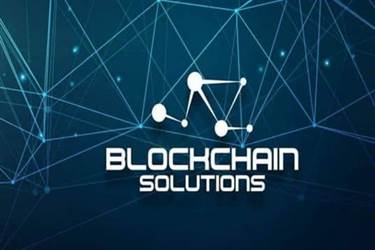Content
Some people say, it is the best CI/CD tool to streamline DevOps automation and software deployment processes. With it, workflows can be split, shared and reused across multiple containers. The latter are solutions for building and deploying containerized apps and testing them in virtual environments. Although it’s very convenient to leverage cloud-hosted services, sometimes it is not reasonable to hand infrastructure management to a third party. Legal limitations could turn out to be a deciding criterion if your company deals with data that is subject to strict regulations — like protected health information . In this case, it’s better to store data locally, on an on-premises server or on a private cloud.

Jenkins is widely customizable through its hundreds of plugins and supports distributed workloads across multiple machines to improve performance and deliver results faster. A powerful application development and release automation tool, MidVision Rapid Deploy is built for DevOps teams and enterprise CD. Delivering consistent high-volume deployments, Rapid Deploy is the robust tool enterprise developers need to support rapid development. Nevercode is a cloud-based CI and CD server that automates the process of building, testing and distributing mobile applications.
Continuous Delivery and Deployment Tools
Moreover, GoCD runs tests written in various languages, supports cross-platform and parallel executions, and reports the exact changeset and platform from which an error originated. You can also generate a straightforward bill of materials using the Compare Builds feature. The tool also supports concurrent pipelines and steps, Docker layer caching, and 360-degree optimizations.

Adding one more build agent and 10 build configurations costs $ 299. TeamCity also gives 50 percent off for startups and free licenses for open source projects. The license for cloud teams starts from $45 per month and depends on the number of active committers. It streamlines the build, automation and deployments of complex build cycles.
The Four C’s of DevSecOps: Code, Container, Cloud, and Cluster
It is one of the best Continuous Integration servers which creates automated pipelines which can be executed through the command line interface. Integrity is a continuous integration server which works only with GitHub. In this CI tool whenever users commit the codes, it builds and runs the code. It also generates the reports and provides notifications to the user. It is a web application with an API that stores its state in a database.
- However, powerful proprietary tools can be expensive, and some companies can’t afford them.
- Configure and run software builds easier with the IBM UrbanCode Build tool, an enterprise-scale build-management solution that uses a template-driven system.
- While PHPCI doesn’t compare to the functionality that of Jenkins, it is a simple and easy to use continuous integration platform for PHP developers.
- The primary offering is a Git repository manager for the web with tools for issue tracking, analytics, and a wiki.
- While Ansible leverages infrastructure as a code architecture, it uses SSH connection for its push nodes thus agentless.
Developed on Kubernetes, Codefresh offers full support for GitOps, and integrations with well-known tools, such as Puppet, Pulumi, Terraform, Slack, GitLab, Bitbucket, and GitHub. With the growing adoption of agile practices, several CI CD tools have hit the market in the past few years. This often causes confusion and makes it difficult for an aspiring software engineer to choose the best CI CD tools to master for career growth. To simplify the selection process, this ci cd tools list includes the top 10 CI CD tools that you need to learn in 2023. There are numerous advantages to introducing incremental changes, as they are less disruptive compared to releasing a big software upgrade in one go.
The tools that automate code changes in software projects.
A hosted continuous integration and delivery platform, Magnum CI is made for private repositories. It integrates with your favorite code hosting provider including GitHub, Bitbucket, Gitlab, and more. FinalBuilder from Vsoft is a Windows software for automating your build process. Despite being efficient to use by itself, it can integrate with any of your favorite tools for continuous integration CI servers, including Jenkins. The key advantage of FinalBuilder is its flexible graphics interface that provides a straight-to-the-point visual outline of your build process. Distelli is a growing startup from Seattle that plans to change the way that devops are deploying to their servers, providing an integrated cloud-based service for doing so.
That way, you’ll know which option will best suits your specific needs. Allows a pretty awesome feature to be able to put a badge on your website whether the build is passing or not. GitLab Continuous Integration / Continuous Delivery offers the same experience as GitLab, https://globalcloudteam.com/ which are familiar, easy to use and all beautiful. While many Continuous Integration DevOps tools are available in the market, only some of them are widely used. Here we will take a look at each of the DevOps tools in specific, and understand the intricacies of it.
CI/CD Tools: 16 Tools Delivery Pros Must Know About
GCP supports DevOps by providing the services required to develop, store, and deploy high-quality software in shorter cycles. The Docker engine is designed to automate the development, deployment, and management of containerized applications on single nodes. Docker is open-source and compatible with cloud services like AWS, GCP, and Azure Cloud. A valuable automation CI tool, Jenkins is pretty easy to install and configure.

When choosing the right cost model, an organization should consider the size and number of projects and builds per project. Some vendors charge based on the number of builds, and others restrict it. The organization should also consider if it requires concurrent builds – for example, multiple teams want access to the same tools. When building a CI/CD pipeline, organizations must assess their existing processes and identify repetitive tasks that an automated tool could complete faster. This assessment should cover team productivity, infrastructure, and budgetary requirements.
Plugins and 3rd party integrations
As the CI CD continues to grow and evolve, it leaves the innovators with more chances to explore on creating the best versions of such tools. Continuous Integration heavily relies on diverse automation tools, including CI servers and code-management systems, to speed up the development, testing, and packaging of software products. It enables early detection and elimination of problems, which greatly mitigates integration issues.
